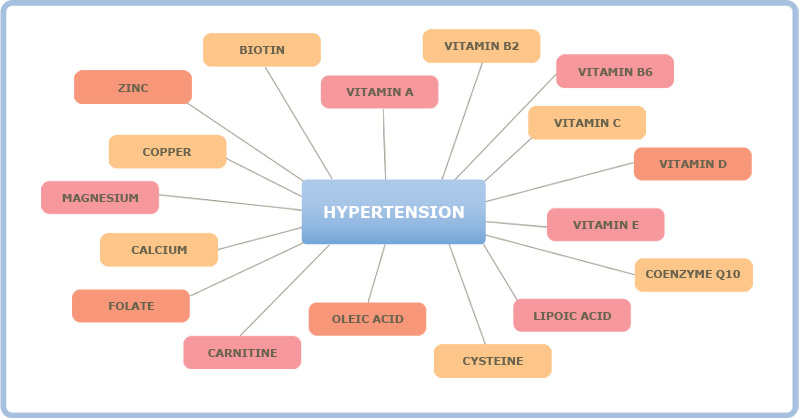 BIO-MONITORS
BIO-MONITORS
- Individuals with on-going elevated NT-proBNP are at significant risk for heart failure.
- NT-proBNP is a hormone that is released into plasma from myocardial
cells during ongoing strain or stress. It differs from BNP which is
an acute phase reactant that is measured in patients with cardiac or
pulmonary distress.
- Increased levels are seen in subclinical cardiovascular
disease indicating possible left ventricular dysfunction,
coronary ischemia, hypertensive disorders or underlying atherosclerosis.
Additionally, elevated levels are seen in various breathing disorders.
- Treat and monitor hypertension, using 24 hour blood pressure monitoring
if needed. Individuals respond well to ACEs and ARBs
in addition to appropriate lifestyle changes, especially weight
loss (if needed) and sodium restriction.
- Find and
treat the underlying cause of ongoing strain on the
myocardium.
- Repeat
abnormal results every 3 to 6 months until treatment
goal is met, then annually.
- Individuals with high homocysteine levels are 2 times as likely to develop coronary artery
disease.
- Hyperhomocysteinemia causes an irritation to blood vessels, impacting
endothelial function. Additionally, high levels impact the availability
of nitric oxide, a potent vasodilator, leading to hypertension, further
accelerating the atherosclerotic process.
- Homocysteine levels may
be elevated due to dietary deficiencies of folate,
B12 or B6 vitamins or due to MTHRF gene mutations limiting its conversion
to methionine.
- Treat with folic acid and B vitamins
based on homocysteine levels. Consider secondary
causes of elevated levels such as renal insufficiency.
- Repeat homocysteine
every 2 months until treatment goal is met.
MICRONUTRIENT TESTS ASSOCIATED WITH HYPERTENSION

Biotin
Pharmacological doses reduce systolic blood pressure by activating
an enzyme (cGMP) that causes smooth muscle to relax.
Vitamin A
Suppresses the growth of vascular smooth muscle, thus keeping
blood vessels (lumen) clear and wide.
Vitamin B2
People with a certain gene (called MTHFR type TT) tend to respond
well to B2 therapy for lowering blood pressure.
Vitamin B6
Lowers homocysteine, a toxin that makes arteries stiff and raises
blood pressure; Low B6 is strongly linked to hypertension.
Vitamin C
Improves the ability of blood vessels to react appropriately to
relaxation signals; Increases nitric oxide, a powerful vasodilator.
Vitamin D
Low vitamin D is strongly linked to hypertension, possibly due to
its role in calcium transport; Augments blood pressure lowering
effect of calcium; Keeps blood vessels smooth and healthy.
Vitamin E
Increases nitric oxide synthase, an enzyme that causes blood
vessels to dilate; Protects blood vessels from damage.
Coenzyme Q10
Improves bioenergetics of blood vessel wall; Deficiency highly
correlated to hypertension; Benefits of CoQ10 often not seen for
several weeks.
Lipoic Acid
Improves vascular tone; Causes vasodilation; Works like calcium
channel blocker meds; Recycles vitamins C, E and cysteine.
Cysteine
Anti-hypertensive effects stem from its role as a potent
antioxidant; Effective vasodilator.
Oleic Acid
The benefits of olive oil for blood pressure are largely due to its
high oleic acid content, which protects endothelial cells (inner
lining of blood vessels) from inflammation.
Carnitine
Lowers blood pressure in the same way as ACE inhibitors, a
common hypertension drug which reduces angiotensin, a
substance that causes arteries to constrict; Its role in fat
metabolism explains this effect.
Folate
Lowers blood pressure by improving endothelial function, or
the ability of blood vessels to properly dilate.
Calcium
Optimal calcium status reduces vasoconstriction; Particularly
effective for salt-sensitive hypertension as it increases sodium
excretion.
Magnesium
Promotes dilation of blood vessels; Low intracellular levels are
a well established cause of hypertension.
Copper
Regulates enzymes that keep blood vessels dilating properly;
Depletion causes hypertension; Supplementation trials positive.
Zinc
Regulates angiotensin and endothelin, two enzymes that directly
affect blood pressure; Deficiency causes blood vessels to constrict.

![]() BIO-MONITORS
BIO-MONITORS

